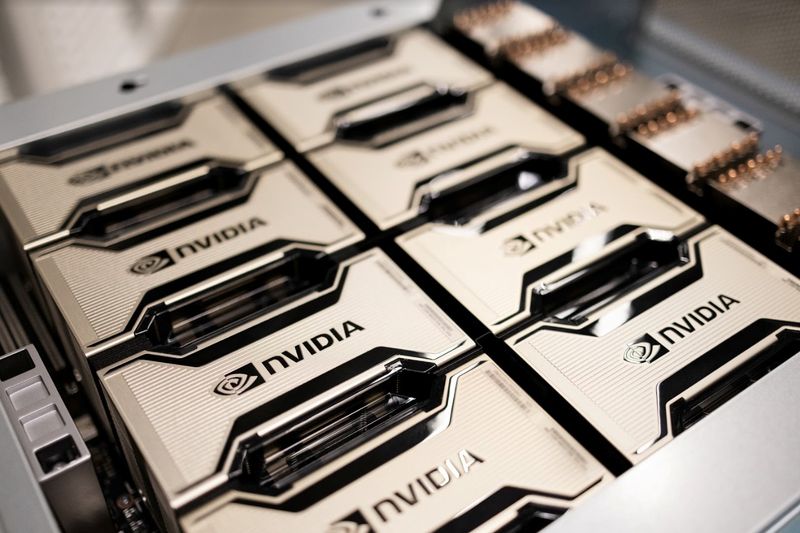Benzinga - by Anusuya Lahiri, Benzinga Editor.
Advanced Micro Devices, Inc. (NASDAQ:AMD) and Intel Corp (NASDAQ:INTC) face challenges in China, where the East Asian country retaliated against the U.S. semiconductor sanctions by eliminating foreign technology from its telecom systems.
In 2024, Chinese officials directed major telecom carriers to phase out foreign processors, notably impacting American chip giants Intel and AMD. China set the deadline for 2027.
This Ministry of Industry and Information Technology directive accelerates Beijing’s ambitions to end the use of foreign core chips in its telecom infrastructure.
The Wall Street Journal reports that China tasked its telecom operators with inspecting their networks for non-Chinese semiconductors and planning their replacement.
Also Read: US Embargo On Nvidia Stings Hard, China’s AI Development Lags Peers: Alibaba’s Joe Tsai Reveals
The key AI beneficiaries, including Nvidia Corp (NASDAQ:NVDA), AMD, and Intel stock, are trading lower Friday following the report. Previously, Nvidia claimed there was no material impact from U.S. sanctions on China.
Historically, China’s dependency on foreign semiconductors persisted due to the inferior quality of domestic chips. However, the situation is changing as local chip quality and performance have improved, prompting a shift towards domestic alternatives.
This transition poses significant challenges to Intel and AMD, which have supplied many core processors in China’s networking equipment.
American restrictions on selling high-end AI chips to China and China’s localization policies threaten the market positions of Intel and AMD, which are substantial players in the global semiconductor industry.
Intel, with China as its largest market, and AMD saw a revenue reduction from China following U.S. restrictions.
This shift comes as China aims to enhance its telecom capabilities, moving towards faster network speeds and promoting local CPU alternatives, further challenging Intel and AMD’s dominance in one of their key markets.
Analysts had an exciting take on Nvidia, AMD, and Intel in the current semiconductor landscape. Analysts flagged Nvidia’s competitive edge in the AI chip market, notably with its advanced AI chips like the A100 and H100, which are critical for server-based AI in data centers.
Despite facing U.S. export restrictions to China, Nvidia has adapted by introducing new GPUs exempt from these curbs and planning specific models for the Chinese market, underscoring its dominance and innovative response to regulatory challenges.
In contrast, AMD and Intel are pivoting towards AI personal computers by embedding AI chips for local model processing, aiming to enhance data privacy and battery life.
However, widespread consumer adoption may be gradual due to the lack of AI-native applications.
Nvidia stock surged over 242% in the last 12 months. AMD climbed 85% and Intel by 18%.
Investors can gain exposure to Nvidia via VanEck Semiconductor ETF (NASDAQ:SMH) and Global X Robotics & Artificial Intelligence ETF (NASDAQ:BOTZ).
Price Actions: AMD shares traded lower by 3.41% at $164.69 on the last check Friday. INTC shares traded lower by 3.48% at $36.32. NVDA shares traded lower by 1.18% at $895.50.
Disclaimer: This content was partially produced with the help of AI tools and was reviewed and published by Benzinga editors.
Photo via Shutterstock
© 2024 Benzinga.com. Benzinga does not provide investment advice. All rights reserved.
